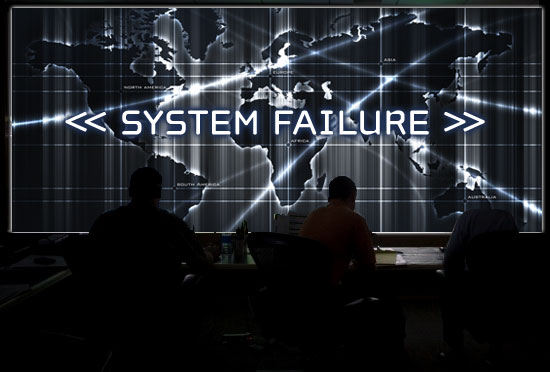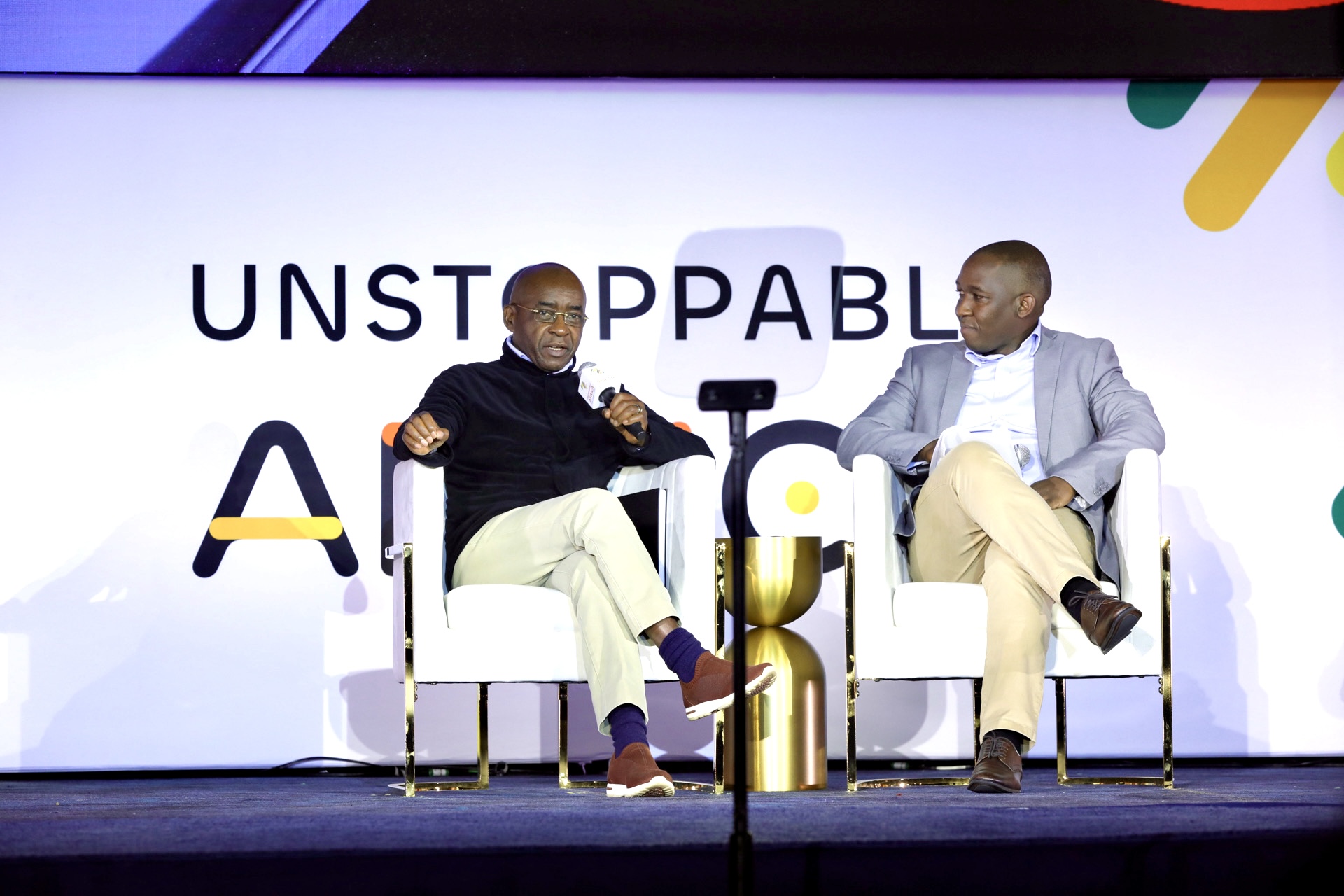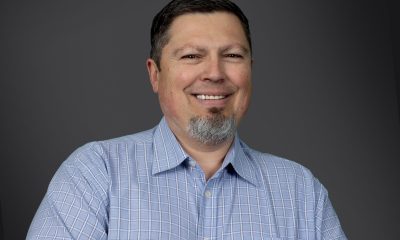Technology
KnowBe4 Africa goes continental with Cyber Security Africa

KnowBe4 Africa aims to make access to its cybersecurity awareness training platform easier for African businesses through CS Africa
JOHANNESBURG, South Africa, October 21, 2019- KnowBe4 Africa is proud to announce that we are partnering with Cyber Security Africa as our African distributor. KnowBe4 Africa aims to make access to its cybersecurity awareness training platform easier for African businesses through CS Africa and offer a necessary solution to the threat of cybercrime in growing economies.
At the recent World Economic Forum in Cape Town, African business owners flagged cybersecurity as the biggest threat to a successful operation, with 94% of companies in Africa and the Middle East experiencing a cyberattack in the past year.
Stronger together
The distribution agreement between KnowBe4 Africa and Cyber Security Africa will allow for relationship building as well as provide local support on the ground for channel partners and end users. Considering the rapid rate of digital transformation in African countries, it’s vital that employees develop a security culture that will benefit them both personally and professionally.
Cyber Security Africa was the top choice as a continental distributor and has quickly established itself as an industry-leading Value-Added Distributor with a single-minded focus – the mitigation of information security risk for their clients. They focus their attention on niche, generally complex and certainly relevant security solutions that can utilized by organisations of all sizes and sectors. Lead by Martin Britz, Cyber Security Africa prides itself on being small enough to remain agile and large enough to apply a dedicated approach to each client experience.
For this new venture, Martin is assisting in the North and Central African regions. Gayle Britz will serve as the KnowBe4 champion and care for the SADC region. She guides a highly experienced team that includes Femi Ibine in West Africa, Susan Ndungu and Gladys in East Africa along with Andrew Ajuchi in Nigeria. Together, the Cyber Security Africa team will be able to provide support to business in close to 20 countries across the continent.
Cyber Security Africa founder, Martin Britz, believes great things are on the horizon for the fledgling partnership. “What sets us apart from our competitors is our keen understanding of this ever-evolving cybersecurity industry, with all its technologies, innovations, threats and solutions, positions us as “future-proof” to clients, while maintaining availability to attend to their more immediate needs. The offering from KnowBe4 Africa is unique and it’s exciting to be able to offer local training content that will have big benefits for African businesses.”
Also Read The Africa Digital Entrepreneurship Event Live in Johannesburg
Transforming security culture
At the heart of this partnership is an authentic desire to empower and protect the greatest assets of any business: its people. Both KnowBe4 Africa and Cyber Security Africa focus on minimizing cyber risk for clients by educating their employees on how to spot threats like phishing, social engineering and training them with general information security practices. This fortifies the clients’ cybersecurity posture, saving them time and money while also drastically reducing the risk of falling prey to a cyberattack.
Anna Collard, managing director of KnowBe4 Africa firmly believes in securing a human firewall and creating a culture of security awareness in the digital age. “The human factor has become very important to the security of the organisation. People need to understand that if they use technology, they have to be cognisant of the risks. Organisations can support this understanding by investing in training that’s relevant, targeted and memorable. Training that can sustainably transform the company’s security culture.”
Whether it’s an SME, a healthcare institution or even a manufacturing business, there’s no doubt that all organisations will come to understand the importance of security awareness training. We certainly know that Africa is ready to make smarter security decisions, every day.
Technology
Unstoppable Africa 2025: Africa’s AI Ambitions and Digital Future Go Global

Major projects and initiatives that are set to position Africa at the heart of global innovation, notably the expansion of the continent’s AI infrastructure, were announced today at Unstoppable Africa 2025 in New York as CEOs convened to discuss Africa’s place in the global economy. This marks a significant step in enabling the continent’s stakeholders to develop local AI solutions designed to address some of Africa’s most pressing challenges.
Zimbabwean billionaire, Founder and Executive Chairman of Econet Global and Cassava Technologies, Strive Masiyiwa, announced that steps are underway to establish Africa’s first network of AI factories. Powered by NVIDIA GPUs, the facilities will be completed by the end of 2026, setting the stage for homegrown innovation and accelerating Africa’s participation in the global AI economy.
Another announcement came from Meta, presented by Kojo Boakye,Vice President, Public Policy Director for Africa, Middle East & Turkey. The company signalled upcoming investment opportunities in Africa’s digital ecosystem, highlighting its confidence in the continent’s growing tech and AI potential.
These initiatives reflect a shift toward locally led solutions and long-term planning, with a focus on robust systems, adoption of advanced technologies, and capital investment to drive regional integration and global competitiveness.
The second day of Unstoppable Africa 2025, flagship event of the Global Africa Business Initiative (GABI), united business leaders, African heads of state, global investors, and international institutions to accelerate the continent’s economic transformation. New commitments in infrastructure, advanced technologies and investment highlighted growing confidence in Africa’s private sector.
In the financial services sector, the Africa Finance Corporation (AFC) in collaboration with African Pension and Social Security Institutions launched the ‘Africa Savings for Growth’ initiative to explore ways to channel African institutional savings into longer-term investments that support inclusive growth. The continent-wide initiative builds on AFC’s 2025 analysis identifying at least $1.17 trillion in institutional assets across Africa, much of it still allocated to short-term, low-yield instruments.
The Global Africa Business Initiative launched two new GABI Action Pathways focused on digital transformation and healthcare aiming to connect businesses, governments, and innovators working in sectors critical to Africa’s competitiveness and resilience.
The Healthcare Action Pathway aims to improve access to medical services through digital tools, build stronger regional supply chains, attract investment, and support the growth of Africa’s healthcare workforce. The Digital Transformation Action Pathway focuses on upgrading government services, expanding internet access and digital infrastructure, training people for future jobs, helping small businesses with tech and funding, and promoting responsible use of AI and data.
Discussions on Day Two focused on new partnerships, Africa’s digital growth, and the continent’s thriving sports and creative industries, including music and fashion.
The forum concluded by highlighting Ava DuVernay, acclaimed director, screenwriter, producer, and founder of ARRAY; 15 year-old Ellyanne Wanjiku Chlystun-Githae, Climate & Health Champion at Seeds for Leadership; Mpumelelo Tevin Mhlongo, Paralympic champion and triple world record holder; Marcus Samuelsson, chef, restaurateur, and author; and international singer-songwriter, Tiwa Savage, who also performed at the end of the event. Their inspiring contributions echoed the forum’s central message of empowerment, innovation, and sustainable progress across the continent.
Closing the forum, Deputy Secretary-General of the United Nations, Amina J. Mohammed said, “When people say Africa is resilient, they’ve got a different definition to resilience than we have. Africa’s resilience is about how we build on what we have and how we strengthen our markets, our economies and our democracies and I believe that the values and principles that we all hold are important. Unstoppable Africa is a space to remind ourselves that this is who we are, it is our narrative, on our terms that we go forth.”
Unstoppable Africa is the leading African business forum held outside the continent. Hosted by United Nations Secretary General António Guterres and H.E. Mahmoud Ali Youssouf, Chairperson of the African Union, the event took place just ahead of the 80th session of the UN General Assembly in New York. Unstoppable Africa aims to accelerate the continent’s economic transformation and empower Africa to take a leading role in shaping the markets of the future.
Technology
Kaspersky warns travelers: AI-powered attacks are targeting hotel guests

Between June and August 2025, Kaspersky’s Global Research and Analysis Team (GReAT) discovered a new wave of cyberattacks by a threat group called RevengeHotels, which targets hotels to gain access to guests’ payment information. The group has been operating since 2015 and has since upgraded its methods. The threat actor is now using Artificial Intelligence (AI) to make their attacks more effective and reach additional regions. Analysis shows that many of the new malicious programs used in these attacks contain code likely generated with AI, making them more sophisticated and harder to detect.
While hotels in Brazil have been the main target to date, such cyberattacks have also been reported in other countries around the globe. And considering that countries in Africa, including South Africa and Kenya, are popular tourist destinations, and Nigeria a popular business travel destination, it is important to consider that no country or hotel is immune to falling victim.
How the attacks work
The threat actor sends phishing emails directly to hotel staff, often disguised as requests for reservation or job applications. Once a hotel employee interacts with these emails, malware called VenomRAT is installed on the hotel’s systems, giving attackers access to guests’ payment data and other sensitive information. The emails often look convincing, coming from legitimate-looking websites.
“Сybercriminals are increasingly using AI to create new tools and make their attacks more effective. This means that even familiar schemes, like phishing emails, are becoming harder to spot for a common user. For hotel guests, this translates into higher risks of card and personal data theft, even when you trust well-known hotels,” comments Lisandro Ubiedo, expert at Kaspersky’s Global Research and Analysis Team.
To stay safe, Kaspersky recommends:
- Even if an email seems friendly, treat links and attachments with care. To protect your company, use solutions from the Kaspersky Next product line that provide real-time protection, threat visibility, investigation and response capabilities of EDR and XDR for organisations of any size and in any industry.
- Cybercriminals often distribute fake email messages mimicking email notifications from an online store or a bank, luring a user to click on a malicious link and distribute malware. If attackers are specifically targeting your organisation, the email text may be more customised, mimicking services or scenarios familiar to your company. With that in mind, fine-tune your antispam settings and never open attachments sent by an unknown sender.
- Try not to open unexpected files sent by you massively. They may be ransomware or even spyware, even attachments from official-looking emails.
Technology
Nigerian Risk Expert Unveils NaijaShield™, Africa’s First AI-Powered Stress Testing Engine

Nigerian-born financial risk specialist Oyindamola Ogunruku, currently a senior market risk analyst at Goldman Sachs, has developed a groundbreaking invention called NaijaShield™, an artificial intelligence-driven stress testing engine designed to transform how banks and regulators in frontier economies anticipate and manage financial shocks.
Traditional stress testing models were built for the stable conditions of developed markets and have proven inadequate for economies like Nigeria, where inflation, volatile exchange rates, and abrupt policy shifts create unique vulnerabilities. NaijaShield™ tackles this problem by combining machine learning, regulatory alignment, and predictive analytics to create a dynamic system that can simulate real-world crises in real time. The invention uses a risk detection engine to process market data, a simulator to model events such as currency crashes or oil price slumps, a scorecard generator to highlight exposures, and a regulatory module that syncs results with Central Bank of Nigeria requirements. Its final layer is a decision dashboard that gives auditors, executives, and compliance teams actionable insights at a glance.
Ogunruku describes NaijaShield™ as an intelligent early warning system that can help African banks strengthen resilience, prevent systemic risks, and build investor confidence. She has urged Nigerian regulators to establish sandbox environments where tools like NaijaShield™ can be tested safely before full deployment, noting that its impact could extend beyond Nigeria to other frontier markets with similar instability.
Her career reflects the combination of local insight and global expertise that makes this innovation possible. From designing adaptive risk scorecards at fintech firms in Lagos to managing market risk oversight at Goldman Sachs in the United States, she has consistently demonstrated an ability to bridge advanced analytics with real-world banking challenges. With peer-reviewed publications on AI in financial stress testing, anomaly detection, and green fintech, the unveiling of NaijaShield™ underscores her standing as a pioneer at the intersection of artificial intelligence, finance, and regulatory innovation.
“The future of financial oversight is not just digital — it is intelligent,” Ogunruku said. “NaijaShield™ proves that frontier markets like Nigeria can lead in developing the tools that make global finance safer.”
-

 Oil and Gas2 days ago
Oil and Gas2 days agoTotalEnergies, Chevron Push for Faster Permits, Better Seismic Data in Africa
-

 Afripreneur10 hours ago
Afripreneur10 hours agoRevolutionizing Cross-Border Payments in Africa: An Exclusive Interview with Onyinye Olisah
-

 Energy2 days ago
Energy2 days agoUnited States (U.S.) Political Will, African Reforms Signal New Era for Energy Investment















